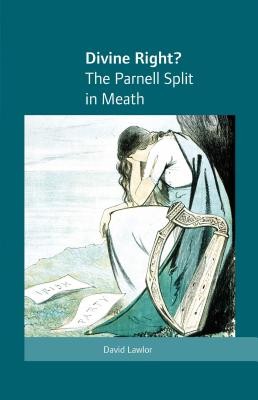
- We will send in 10–14 business days.
- Author: David Lawlor
- Publisher: Cork University Press
- ISBN-10: 185918426X
- ISBN-13: 9781859184264
- Format: 24.1 x 16.6 x 3 cm, kieti viršeliai
- Language: English
- SAVE -10% with code: EXTRA
Reviews
Description
This unique account of the dramatic events of the Parnell split in Meath challenges the accepted view that Irish priests could lead their people only in the political direction that they wished to go. Meath people were devoted to Charles Stewart Parnell, who had entered Westminster as their MP in 1875. The loyalty of many of them was unaffected by the divorce court revelation in 1890 of his adultery with Katharine O'Shea, which caused the split that continued even after his death in 1891. However, Bishop Thomas Nulty preached that no Parnellite voter could "continue a Catholic" but then claimed election results as political victories.
David Lawlor's research shows how Dr. Nulty broke the power of local Parnellites over their refusal to vote for a nun as matron of Navan workhouse. The bishop then nominated Michael Davitt, founder of the Land League, to unseat North Meath's Parnellite MP, Pierce Mahony. While the Parnellites successfully petitioned the courts to have Davitt's election annulled because of "undue clerical influence", new anti-Parnellite candidates narrowly won the ensuing by-elections. However, clerical interference in Meath politics provided damaging evidence of "Rome rule" to Tories and Unionists opposing Gladstone's second Home Rule bill, which was lost in the Lords in 1893.
EXTRA 10 % discount with code: EXTRA
The promotion ends in 22d.14:09:49
The discount code is valid when purchasing from 10 €. Discounts do not stack.
- Author: David Lawlor
- Publisher: Cork University Press
- ISBN-10: 185918426X
- ISBN-13: 9781859184264
- Format: 24.1 x 16.6 x 3 cm, kieti viršeliai
- Language: English English
This unique account of the dramatic events of the Parnell split in Meath challenges the accepted view that Irish priests could lead their people only in the political direction that they wished to go. Meath people were devoted to Charles Stewart Parnell, who had entered Westminster as their MP in 1875. The loyalty of many of them was unaffected by the divorce court revelation in 1890 of his adultery with Katharine O'Shea, which caused the split that continued even after his death in 1891. However, Bishop Thomas Nulty preached that no Parnellite voter could "continue a Catholic" but then claimed election results as political victories.
David Lawlor's research shows how Dr. Nulty broke the power of local Parnellites over their refusal to vote for a nun as matron of Navan workhouse. The bishop then nominated Michael Davitt, founder of the Land League, to unseat North Meath's Parnellite MP, Pierce Mahony. While the Parnellites successfully petitioned the courts to have Davitt's election annulled because of "undue clerical influence", new anti-Parnellite candidates narrowly won the ensuing by-elections. However, clerical interference in Meath politics provided damaging evidence of "Rome rule" to Tories and Unionists opposing Gladstone's second Home Rule bill, which was lost in the Lords in 1893.


Reviews